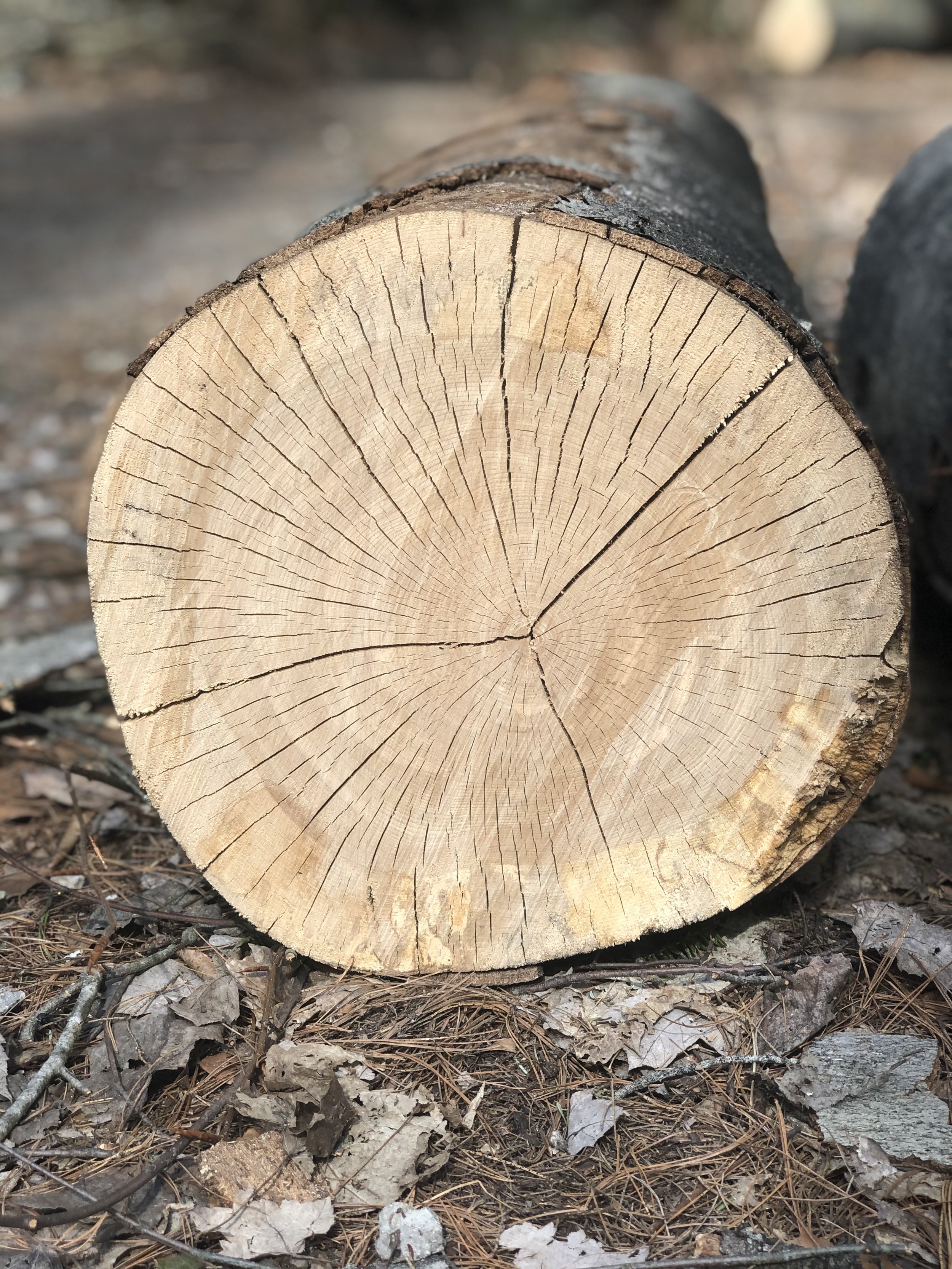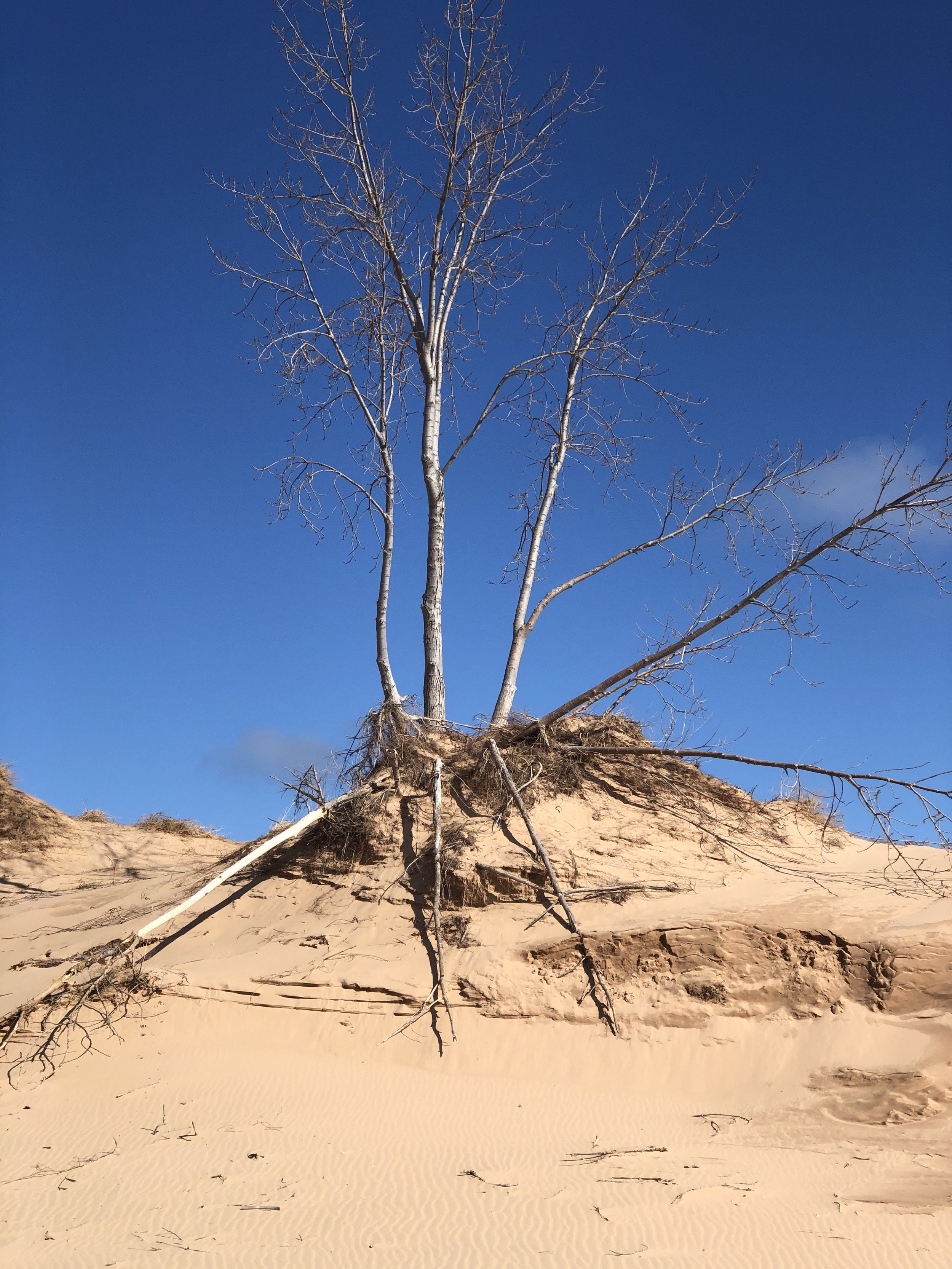Tending our Christian lineage
We all come from lines. Many of them.
The lines of blood & bone that animate our tissues,
the lines of education and skill tending,
the lines place(s) where we have made homes.
All of these lines are our lineage. To be in a lineage is to have roots, to have ways of being passed on to you.
I recently heard Michael Morris speak about the multitudes of these lines as our ancestors of blood, path, possibility and place. There are those ancestors whose tissues and cells survived and in some cases thrived, and have made it possible for us to come into being. There are also those ancestors who have shared a path we share, they have shared a way of practice with you in your body. We also have ancestors who, because of the lives they lived, made our lives possible, those who cleared the way, shored up the river banks for us. And we have ancestors of place, those who came long before us on the particular land where we tend our lives.
Beyonce’s recent album, Cowboy Carter, has a song called PROTECTOR, which is a lullaby to her child Rumi. In it there is a line that says, “There’s a long line of hands carrying your name, lifting’ you up, so you will be raised.” It moves me every time. To feel for those who made a Black woman’s life like Beyonce’s possible. And — to feel for the long line of hands who have carried my name, carried the possibility of who I might become. There are some I can call by name and others I cannot. There is medicine available to simply feel for those ancestors’ and their dreams for our lives.
All of these lines have carried the possibility of who we might become.
The multitude of ancestral lines at our backs are powerful shaping forces in our lives. But there is both gift and wound here. We have both blessings and burdens inside these lines, and part of living now is to come into relationship with both.
Even using the word “lineage” carries a flavor of colonialism in it. Webster defines it as “lineal descent from an ancestor; ancestry or pedigree.”
“Pedigree: a record of descent of an animal, showing it to be purebred.” There it is. The hierarchy of human bodies. The assertion that there is a distinction or quality that is different about a “pure line.”
This suggestion of pedigree in humanity is not unfamiliar as I feel for my own Christian lineage. As White settler people came to settle on Turtle Island, much of the language used to describe the peoples whose land they invaded indicated that there was an idea that one kind of evolved form of human was better than another. [I won’t repeat those words here, but you can watch this video from Mark Charles to learn more about how that idea is baked into our nation’s founding documents.]
The Christian churches were used as a frontline weapon to “civilize” and force assimilation of Indigenous people’s into the Christo-European ways of life. This was rooted in the idea that one kind of human body was more pure, more evolved, superior. (One example is the way our people depicted Jesus over time as summarized in this meme that has traveled the internet.)
As a descendent of White Christian settlers, some of whom were clergy in the Baptist and Anglican traditions — this is my lineage. I invite you to pause here - and feel for the impact of this on you as you feel for your own lineage.
What emotions are present? What is happening in your body? Do you feel anger? Sadness? Numbness? Do you feel yourself distancing yourself from me, or your people? From Christianity?
Christianity has long been complicit in the propagation and violence of colonialism. And part of our work as practicing Christians or as descendants of Christians is to reckon with our responsibility to tend repair for that violence.
We cannot do that without being in touch with the reality that participating in colonialism has also had a cost for our people — that cost has been much different for us than for Black, brown and Indigenous people — and yet the cost is weighty. We must tend our own hurt here because the wound of it is blocking our capacity to tend repair well.
One major cost has been to our spiritual life. Our rituals and spiritual practices have become more and more disembodied as our people distanced themselves from their native land and land-based practices. Enacting colonialism requires us to sever our relationship to the earth and the particular land on which we reside, and requires us to shut down our feelings in order to dehumanize another. James Baldwin wrote:
“It is a terrible paradox,
but those who believed that they could control and define Black people
divested themselves of the power to control and define themselves.”
~ On Being “White” & Other Lies
The cost of White settler Christians and their descendants cutting themselves off from land & lineage, from bodies & rituals has enabled cultures of violence and domination to continue to thrive, on Turtle Island and around the globe. The kind of Christianity we have come to know has been deadly.
So it makes sense that so many descendants of Christian lineage have made the move to sever ties with the religion. It is for good reason. We have felt the violence inside of this ancestral line, upon ourselves and others. In many instances – this move to sever ties has been life saving (literally), life affirming, and liberating.
At the same time, it also feels like a move we make as colonial people, to sever our ties, to break relationship with our ancestors and leave them behind for the sake of protecting ourselves and our vision for the future.
This all feels risky to say out loud (or write…) given how much harm there is at the hands of the church - but I can’t shake the question that arises for me when I see this move:
What do we lose when we do this? What is the impact of this severance?
I have said many times before that it feels like when we separate ourselves from other Christians it looks and feels a lot like when White people separate themselves from other White people saying: “I’m not one of them.” “I’m not one of the bad ones.”
What arises in you when you hear this?
Again - this move makes sense, we’re working to come into integrity with our commitments for a liberated future. We want so badly to be good people. I think the move to distance ourselves in this way is shaped by a perception that we can more easily leave Christianity behind. Like: it’s easier to stop being Christian than it is to stop being White. Or is it? Maybe that is my point. It feels like a bit of an illusion that we can shed this shaping more easily than Whiteness.
Christian culture has shaped us. (Because of Christian hegemony this is true whether you’re Christian or not, but here I’m specifically speaking to those who are descendants of White Christians.) The cultural forces of Christianity reside in our habits. If lineage is, in part, to have a way of being passed to you, then the shape of Christianity has in turn shaped us.
Just like that family trait of excessive criticism or indirect communication is in us…
Just like paternalism and our right to comfort as White folx is in us…
so is the idea (from the Christian theology) that our way of practice can save the world.
[Oof - it hurts just to write it. Because even this written piece holds some shred of an assumption that what I am offering here has some singular wisdom that can help save us.]
So the questions I’ve been living with are:
What do we do with this lineage in us?
How do we come into relationship with the blessings and burdens of it?
What does it cost us to sever ties?
What could be gained by coming a little closer?
What might that look like?
Vanessa Machado de Oliveira says in Hospicing Modernity, “Stories are living entities that emerge from and move things in the world. Some of these stories are meant to exist for a long time, others expire early.” She describes our current way of being as living off of expired or expiring stories, and that we must feel for how to compost our stories for what is next.
It may mean that Christianity as we have known it ends. But does that mean we leave any medicine it has to offer behind? How can the story of Christianity as it has long been aligned with empire become compost? If you burn compost too hot, the beneficial microbes that help grow new life die out. Maybe I’m mixing metaphors, but that’s what severing our ties feels like to me. How can we let the old story go and at the same time leave room for what this lineage has to offer us next? How can we more consciously face the contradictions and paradoxes of Christianity to allow this line to be transformed through us into medicine for the generations to come?
What I know is that I long for these blessings. Just like I’ve been reaching for the blessings of my European heritage, the woolen textiles and the choral singing. I long for the blessings of my ancestry that hold Christianity to support what is emerging for us in this time. I trust there is so much here for us to lean on, if we are able to turn toward this part of ourselves together.




